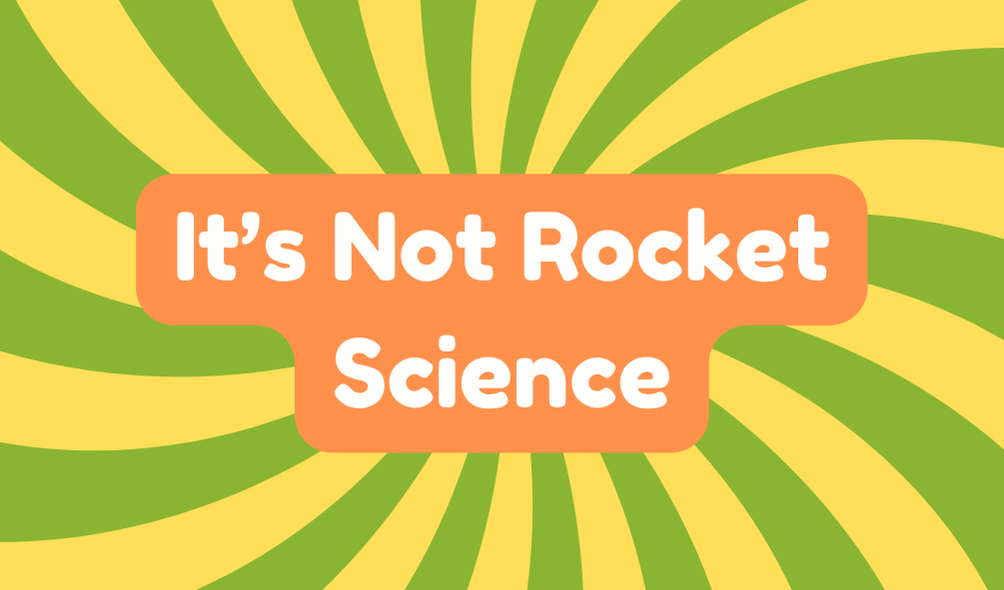The phrase "It's not rocket science" underscores that many tasks are simpler than they appear. Originating in 1990, this saying dismisses the unnecessary complexity we often associate with everyday challenges. Tasks like cooking basic meals or managing a budget can feel intimidating, yet they are quite manageable. This expression encourages a critical perspective on our perceptions of difficulty. Synonyms such as "piece of cake" or "a walk in the park" reinforce this idea that simplicity can be overlooked. Understanding this concept helps balance our expectations. Engaging further can reveal deeper insights into our societal views on task complexity.
Synonyms
When discussing tasks that are perceived as straightforward, various synonyms serve to emphasize their simplicity. Such expressions effectively downplay the inherent challenges faced by those engaged in complex professions, reminding us not to trivialize their depth. Consider the following synonyms that illustrate the ease of simple tasks:
- A piece of cake
- A walk in the park
- As easy as pie
- It's not brain surgery
- Not exactly rocket science
While these phrases communicate a sense of ease, they can unintentionally undermine the skills required for arduous tasks. It's essential to recognize that while some activities may seem simple, many individuals dedicate substantial time and training to master complex professions, underscoring the need for balanced perspectives in our discussions.
Example of Sentences
Exploring the practical application of phrases like "not rocket science" reveals their utility in everyday conversation. Such expressions effectively convey the relative simplicity of tasks compared to complex professions. This can foster a sense of confidence in tackling challenges, yet it may oversimplify genuine difficulties encountered in various fields.
Consider these examples:
- "Assembling furniture isn't rocket science; just follow the instructions."
- "Learning to cook basic meals is not complex; it's merely practice."
- "Fixing a leaky faucet? It's not rocket science."
- "Balancing a budget should be simple; it's not brain surgery."
- "Using a smartphone effectively is easy; it's truly not rocket science."
These instances highlight clarity, encouraging a realistic view of both simple tasks and the complexities that lie in more demanding professions.
Origin
The phrase "not rocket science" stems from a longstanding tradition of contrasting the difficulty of various tasks with those deemed exceptionally challenging, such as rocket science and brain surgery. Its historical significance lies in reflecting societal perceptions of complexity, highlighting an evolution in language that trivializes everyday tasks.
| Phrase | Year First Recorded | Context of Use |
|---|---|---|
| Not Brain Surgery | 1971 | Casual dismissal of complexity |
| Not Rocket Science | 1990 | Emphasizing simplicity |
| Cultural Implications | Various | Highlights changing attitudes towards skill requirements |
These expressions carry cultural implications, illuminating biases in how we categorize tasks, often downplaying real challenges. In doing so, the phrases invite a critical examination of our understanding of difficulty in modern society.
Collocations
Collocations associated with the phrase "not rocket science" help to illustrate its nuanced usage in everyday language. Understanding these variations reveals not only how we communicate but also how we perceive complexity in tasks. Here are some alternative phrases often linked with "science":
- A piece of cake
- As easy as pie
- It's not brain surgery
- Simple as ABC
- Walk in the park
These collocations highlight common tasks that are perceived as straightforward, even if that perception can be misleading. They prompt us to critically evaluate our assumptions about difficulty, encouraging a more realistic understanding of what lies ahead in our innovative endeavors. Embracing this nuanced language can ultimately lead to better decision-making in both personal and professional contexts.
How to Use in Everyday Language
Phrases like "not rocket science" and its collocations serve as practical tools in everyday conversation, allowing individuals to convey complexity in a relatable manner. By embedding such phrases into discussions, people can effectively normalize the challenges of simplifying tasks. For instance, one might say that organizing an event is "not rocket science" to alleviate pressure and encourage participation.
However, it is essential to recognize that while these expressions can downplay difficulties, they may also oversimplify genuine complexities. Striking a balance in everyday conversations is vital, as dismissing challenges can lead to misunderstandings. Ultimately, using phrases like "not rocket science" responsibly can foster a culture of innovation while maintaining a realistic perspective on task management.
Why Is It Still Relevant Today?
Why does the phrase "not rocket science" continue to resonate in contemporary discourse? This idiom encapsulates a sentiment that transcends its original context, evolving to address our era's complexities. In a world where algorithmic creativity and cultural literacy shape innovation, understanding the simplicity behind challenges becomes crucial. The phrase serves as a reminder that not all tasks require extensive expertise or specialization.
Here's a quick comparison of relevant terms:
| Concept | Definition | Example |
|---|---|---|
| Algorithmic Creativity | Using algorithms to generate innovative solutions | AI-generated art |
| Cultural Literacy | Understanding cultural references and contexts | Knowledge of idioms |
| Simplicity | The quality of being easy to understand or do | Everyday problem-solving tasks |
Thus, "not rocket science" remains fundamental in demystifying challenges today.







